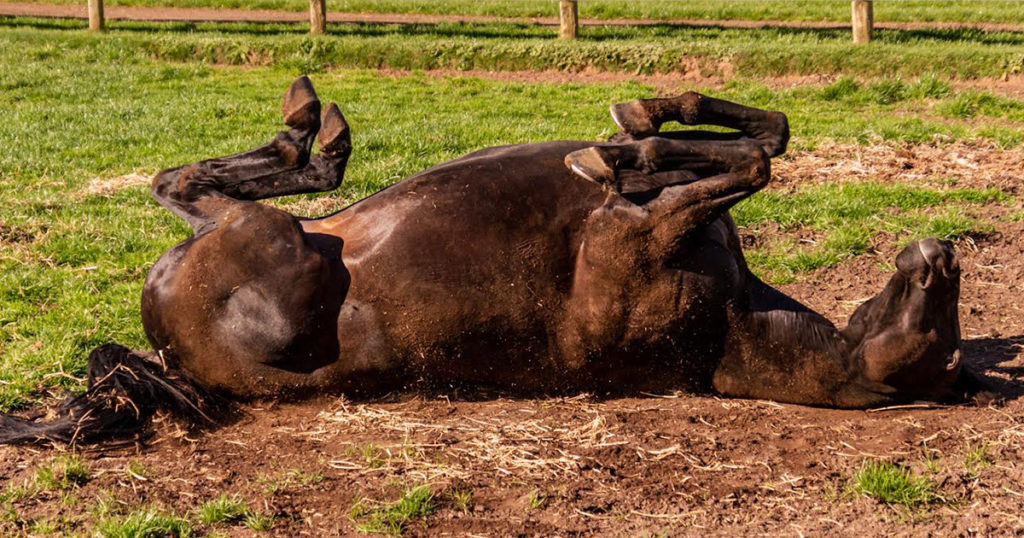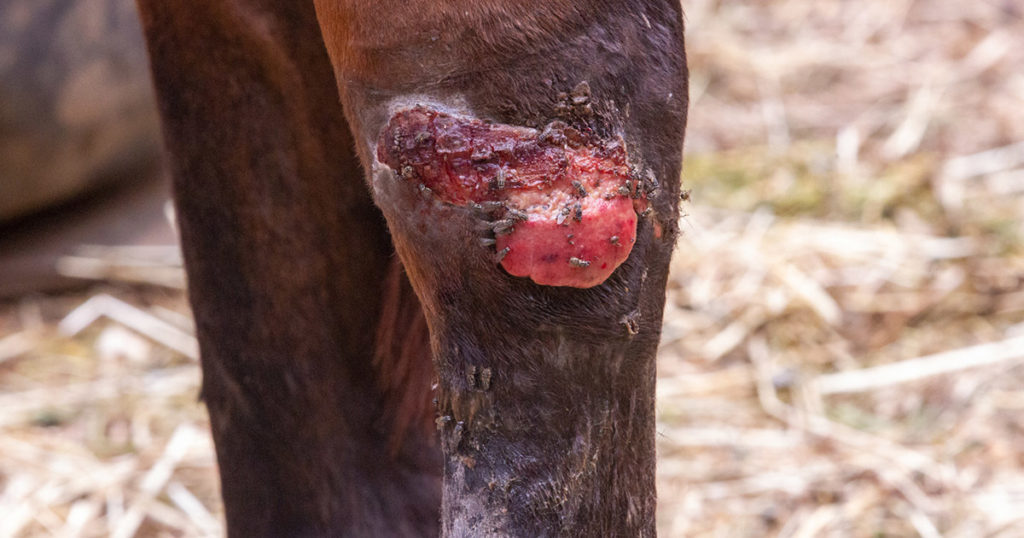Sweet itch, Queensland itch, summer dermatitis, seasonal equine dermatitis, Culicoides hypersensitivity are all terms used interchangeably to describe the allergic skin reaction which occurs in many horses.
The condition is caused by biting midges or gnats (Culicoids). It’s not the actual bite that causes the reaction, but rather the insect’s saliva. Whilst this may not affect some horses, other horses are abnormally sensitive to the midge saliva.
There are many different species of Culicoides, and although their activity is commonly seasonal, in some regions, they are active year round.
In those horses with sensitivities to Culicoides, there are two types of commonly recognised allergic responses: Type 1 which is an immediate reaction, often resulting in hives; and Type 4, which is a delayed reaction. The reactions are mediated by different chemicals in the body. Horses can experience both Type 1 and Type 4 reactions.
Those horses who experience hypersensitivity reactions to Culicoides are commonly atopic, referring to their genetic tendency to develop various allergic conditions, with heightened immune responses. This in part explains why simply applying various lotions and medications to help ‘treat’ the symptoms are merely a ‘band-aid’ effect as they do not address the underlying atopic cause.
Atopic conditions are associated with imbalances in T helper 2 and T helper 1 cells (important cells of the immune system).
Whilst minimising exposure (as is feasibly practical) is important, correctly employed ingestive herbal and nutraceutical supplements, used under qualified and experienced guidance can play an incredibly valuable role by regulating T helper 1 and T helper 2 cell balances, thereby helping horses with such sensitivities.
Skin conditions are so often more than skin deep, and without addressing the underlying cause, results will only ever be superficial….

Camilla Whishaw is a highly regarded, experienced horsewoman and naturopath, helping to holistically treat and manage a broad range of equine health conditions and injuries, with a passion for mare and stallion fertility.
As a world-renowned practitioner, presenter, author, and consultant in the field of Equine Naturopathy, Camilla shares her knowledge through keynote presentations, interviews, lectures, panel sessions, and workshop training.





